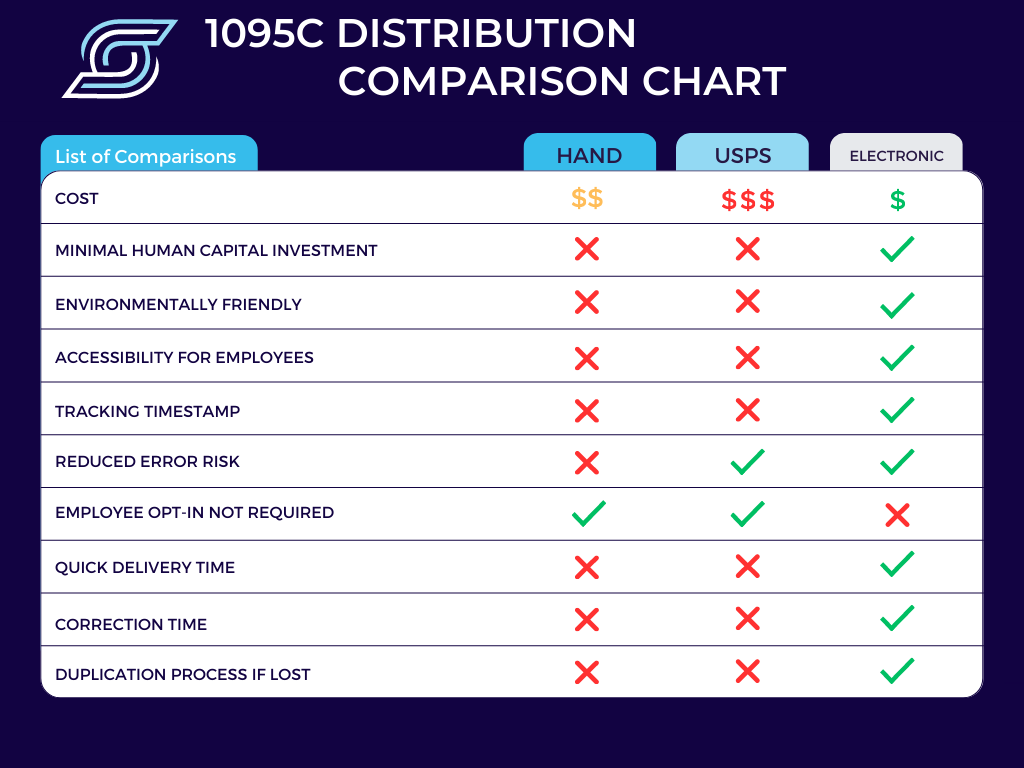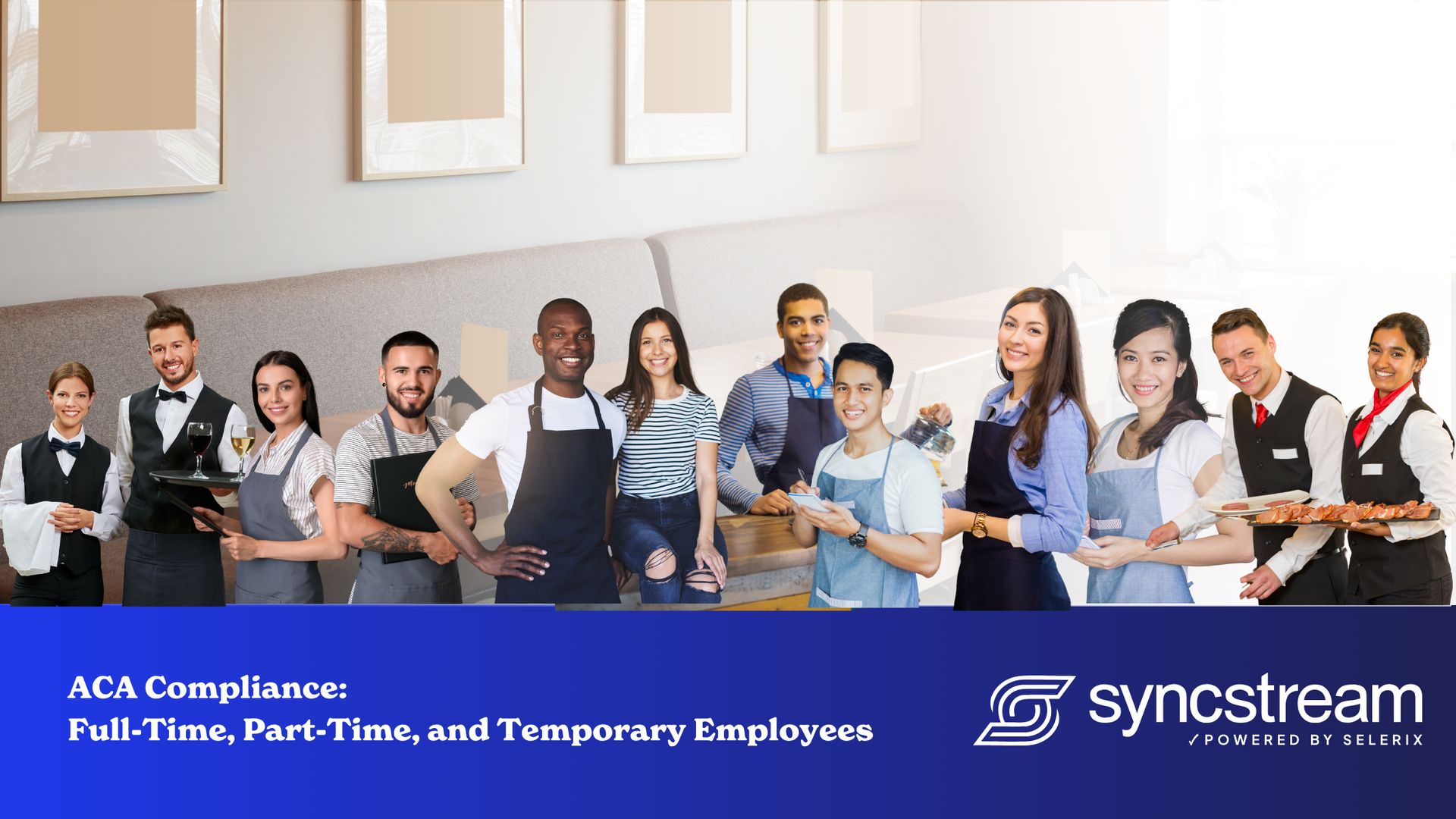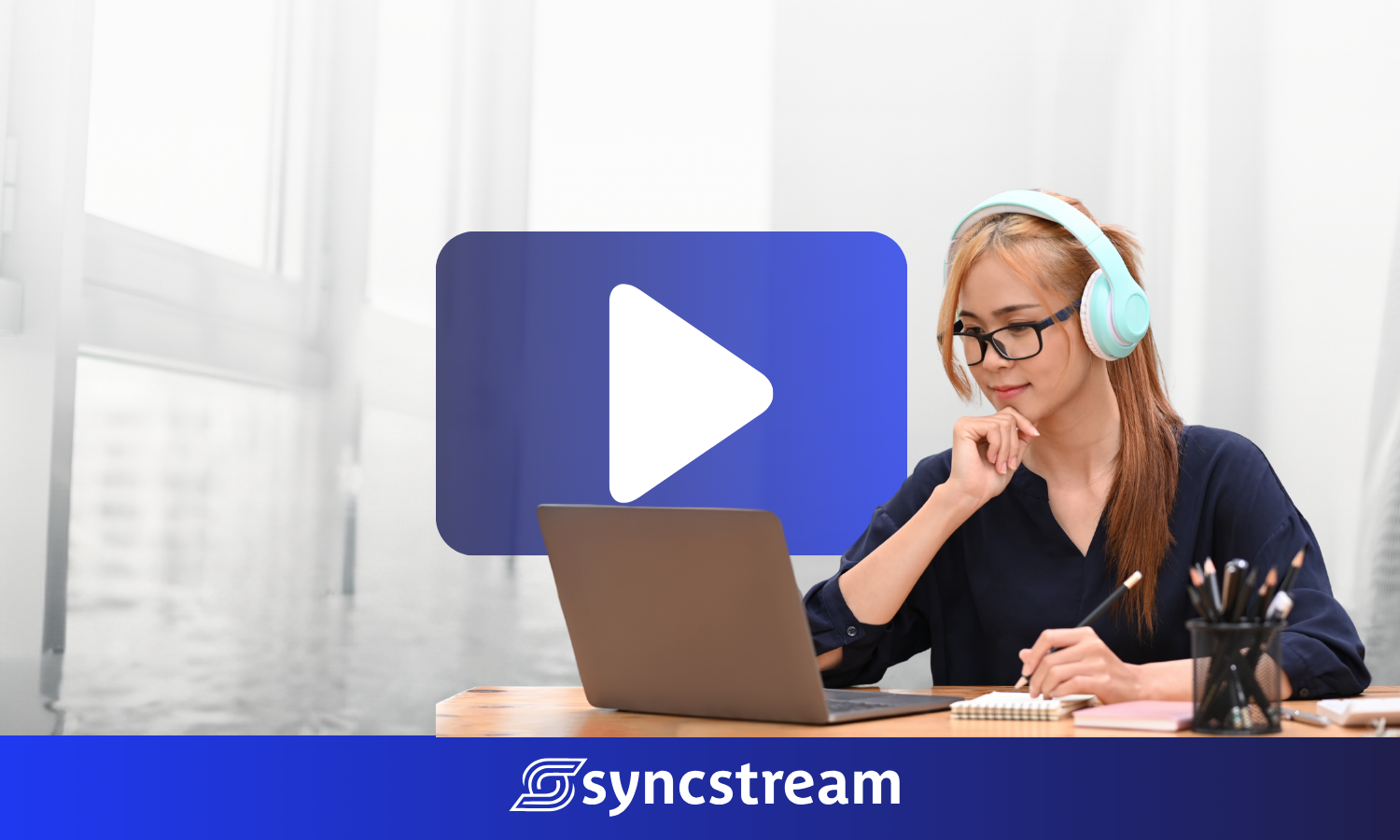Electronic Delivery of 1095C: What Employers Need to Know
Electronic Delivery of 1095C

Let us review what employers should know about electronic delivery.
Deadlines for Distribution and Filing
The distribution to employees is due March 2nd, and the filing to the IRS is due March 31st. Having deadlines in the same month, one would assume the same distribution method would apply for both deadlines, but that is not the case among today’s employers who find the biggest hurdle for electronic delivery to be employee consent.
Purpose of 1095 Form
The 1095C form is an ALE's report card showing their compliance when the IRS inquires due to numerous triggers. ALEs must report the health coverage they offer to their full-time employees and their dependents under the Employer Mandate. Non-compliance with the Employer Mandate results in the penalty known as the Employer Shared Responsibility Payment (ESRP).
Approved Methods of Delivery
Acceptable distribution methods to your employees include mail, hand delivery, or electronic delivery. Although costly, delivery through USPS is always an option. The pandemic forced most to work remotely, eliminating the possibility of hand delivery and forcing employers and employees alike to depend on communication technology such as an employee portal or email, providing the perfect opportunity for electronic delivery.
Electronic Delivery Guidelines
Consent is the hurdle ALEs stumble upon when opting to furnish statements electronically. Requiring affirmative consent ensures that reports are delivered electronically only to individuals who can access them. An employee may consent on paper or electronically, relating specifically to 1095, 1099, or W2 forms, demonstrating the employee's ability to access these statements electronically.
Consent forms must contain the following information:
- Inform the employee that if consent is not given for electronic delivery, a paper copy will be mailed.
- The consent form must provide its scope and duration.
- The consent form must provide procedures for obtaining the documents electronically and how to get a paper copy if electronic delivery fails.
- The consent form must provide the procedure for withdrawal from electronic delivery.
- The consent form must outline the conditions in which electronic delivery will no longer be an option (termination).
- The employer must notify the employee of any changes to the above.
Penalty under 6055 & 6056
The penalty for failure to file a correct information return is $290 for each return for which the failure occurs, with the total penalty for a calendar year not exceeding $3,532,500. The penalty for failure to provide a correct payee statement is $290 for each statement for which the failure occurs, with the total penalty for a calendar year not exceeding $3,532,500. Special rules apply that increase the per-statement and total penalties if there is intentional disregard of the requirement to file the returns and furnish the required statements. Consideration for waiving penalties may apply if the failure was due to reasonable cause and not willful neglect.

About SyncStream
The Employer Shared Responsibility Provision provides very detailed instruction leaving little room for interpretation. With simple adjustments to the current W2 consent form, an ALE could opt for electronic delivery of all official IRS forms. With cost savings, security, speed of delivery, accessibility regardless of location, and consolidation of processes for the employer, this would be a win for all.
Non-compliance is not an option; all ACA compliance needs can be simplified with SyncStream’s Full Service Total ACA solution which includes an electronic delivery option. For those employers still struggling with employee consent or need assistance with delivery and filing, SyncStream’s File & Mail is a great budget-friendly solution.




